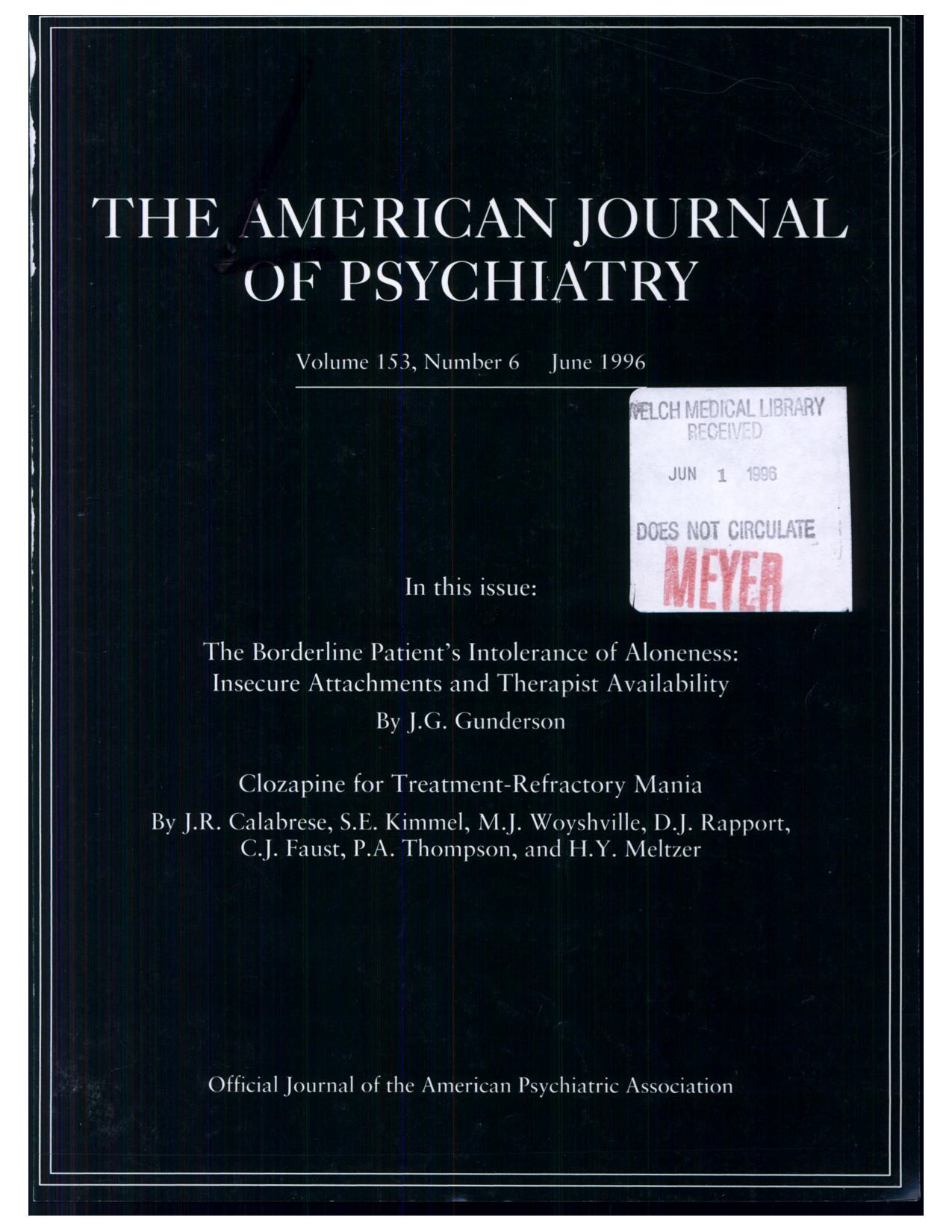Relation of serum valproate concentration to response in mania
Abstract
OBJECTIVE: This study was designed to determine the relation of valproate serum levels to clinical improvement and development of adverse effects in hospitalized patients with acute mania. The initial fixed-dose escalation design, the monotherapy with divalproex, and the control of variables that is possible only with hospitalized patients reduced the confounding factors present in most outpatient studies of serum level-response relationships. METHOD: Sixty-five hospitalized patients who met the Research Diagnostic Criteria for bipolar disorder with mania were treated with divalproex, 750 mg/day for 2 days and then 1,000 mg/day on days 3-5; the dosage was subsequently adjusted as clinically indicated for the remainder of the 21-day study. Manic symptoms were assessed with the Mania Rating Scale, which is derived from the Schedule for Affective Disorders and Schizophrenia. RESULTS: At day 5, patients with serum valproate levels > or = 45 micrograms/ml were two to seven times as likely as patients with levels < 45 micrograms/ml to show 20% or greater improvement in scores on the manic syndrome subscale, the behavior and ideation subscale, elevated mood, increased activity, motor hyperactivity, and psychosis. Endpoint analyses yielded similar results. Adverse experiences characteristic of divalproex treatment were disproportionately associated with serum levels > or = 125 micrograms/ml. CONCLUSIONS: Acutely manic patients treated with divalproex who have valproate serum levels between 45 and 100-125 micrograms/ml are much more likely to have efficacious and well- tolerated responses than patients with lower or higher levels of valproate.
Access content
To read the fulltext, please use one of the options below to sign in or purchase access.- Personal login
- Institutional Login
- Sign in via OpenAthens
- Register for access
-
Please login/register if you wish to pair your device and check access availability.
Not a subscriber?
PsychiatryOnline subscription options offer access to the DSM-5 library, books, journals, CME, and patient resources. This all-in-one virtual library provides psychiatrists and mental health professionals with key resources for diagnosis, treatment, research, and professional development.
Need more help? PsychiatryOnline Customer Service may be reached by emailing [email protected] or by calling 800-368-5777 (in the U.S.) or 703-907-7322 (outside the U.S.).



